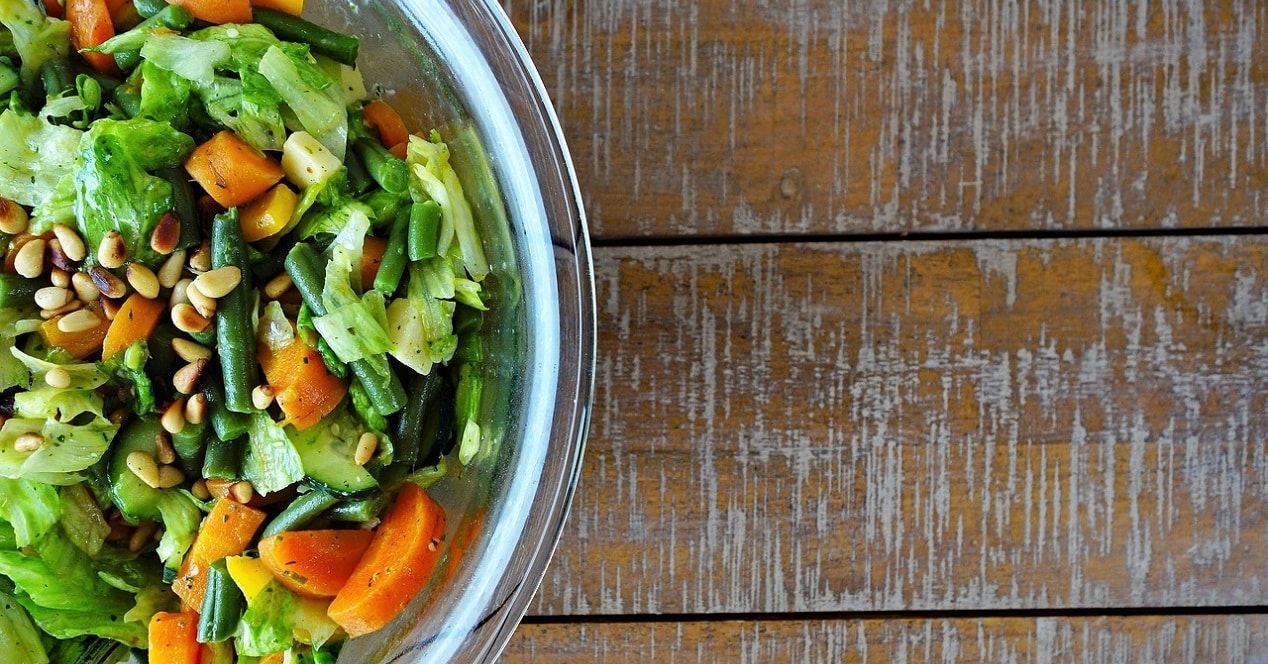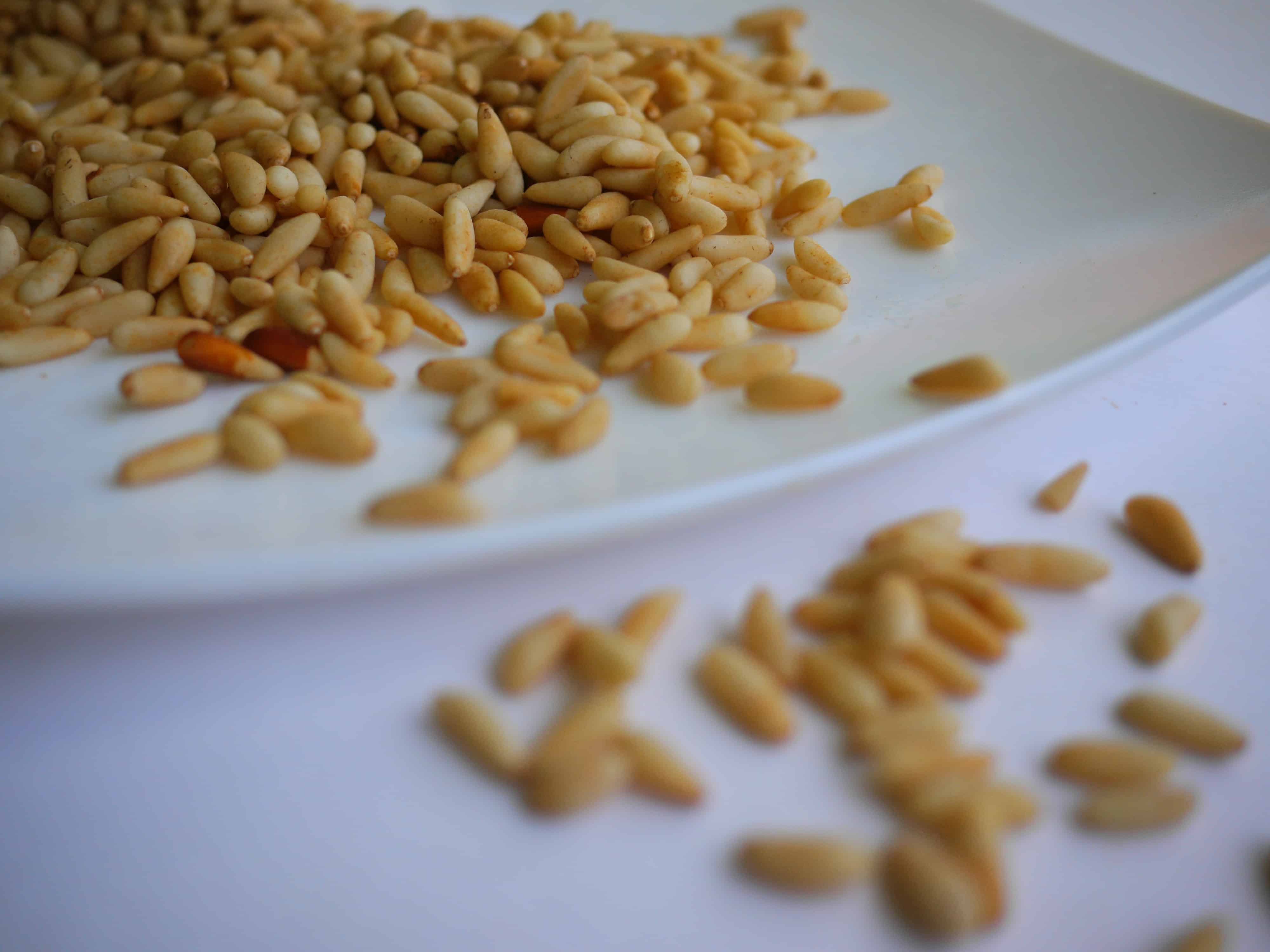
A varied, balanced and healthy diet forms one of the most important pillars for iron health. This must contain all the basic nutrients for the body to function properly. Today we talk about pine nuts and their great properties.
Diet, together with an active life and frequent physical exercise, is necessary to enjoy a good quality of life. We must keep in mind the demands of our body to provide it with everything it needs to function properly.
Properties
Nuts are high-calorie foods that, consumed in moderation, provide great benefits. Pine nuts are nuts rich in a large amount of essential nutrients. Its consumption is not as popular as in the case of other nuts, however it provides many advantages. We can highlight the Omega 3 and 6 fatty acids, essential to promote cardiovascular and nervous system health.
Pine nuts are a source of protein with a higher content than other nuts. They suppose a high contribution of energy, necessary to be able to face the day to day with productivity and vitality; and are rich in healthy fats. Pine nuts are rich in vitamins, mainly vitamin E, and minerals such as iron, potassium, zinc, and magnesium.
Regarding nutritional values, for every 28 grams of dry pine nuts (approximately 167 grains) we find:
- Energy: 191 calories
- Fat: 19 grams
- Sodium: 0,6 mg
- Carbohydrates: 3,7 grams
- Fiber: 1,1 grams
- Sugars: 1 grams
- Protein: 3,9 grams
A serving of dried pine nuts provides just under 4 grams of carbohydrates, with 1 gram of fiber and 1 gram of natural sugar. Most of the calories in pine nuts derive from fat at 19 grams. Most of the fatty acids in pine nuts come from polyunsaturated fat (9,5 grams), followed by monounsaturated fat (5,3 grams). Pine nuts have minimal saturated fat, around 1,4 grams per ounce. The roasted versions with added oil are higher in fat.
These nuts provide just under 4 grams of protein per serving, making them lower in protein than true nuts, such as walnuts, almonds, and pistachios. In addition, they are rich in magnesium, iron, zinc, calcium, phosphorus, vitamin E and vitamin K.

Services
Nuts and seeds are a nutritious addition to most recipes. The higher fat content of pine nuts brings unique advantages that are worth considering.
digestive wellness
Pine nuts contain a high amount of fiber. For this reason, they greatly favor intestinal transit and are recommended in cases of constipation; both to prevent it and to treat it.
Cardiovascular health
Its richness in essential fatty acids helps to balance cholesterol and triglyceride levels in the blood. Therefore, it is advisable to consume them regularly to have good cardiovascular health and thus prevent numerous heart diseases.
High blood levels of "bad" cholesterol, or low-density lipoproteins (LDL), can increase your risk of heart disease. Pinolenic acid is a polyunsaturated fatty acid isolated exclusively from pine nut oil.
Pinolenic acid may help lower LDL cholesterol levels in the blood. Studies in rats have suggested that pinolenic acid causes the liver to absorb and metabolize more LDL cholesterol from the blood. The specific mechanism through which this happens is still unclear and more research is needed.
Weight loss
Despite the fact that it is a dried fruit and they have a controversial reputation when it comes to losing weight, the truth is that, consumed in moderation, they contribute to it. Their fiber and protein content makes them satiating foods that prevent snacking between meals and bring order to daily intakes.
Although nuts are a high-calorie food, they do not contribute to weight gain and help you feel more satisfied. Choosing nuts as a snack over more processed foods can help reduce hunger. The fatty acids found in pine nuts have also been associated with weight control.
improve vision
The beta-carotene and antioxidants in pine nuts improve eye health. In addition, these nuts are full of vitamin A and lutein, which promote the development of sharp vision. The lutein in pine nuts supports eye health by filtering out ultraviolet light and preventing muscle damage. Since the body does not make lutein on its own, it is derived primarily from the foods you eat. Therefore, consuming pine nuts ensures a constant supply of lutein.
Second, antioxidants fight cell degeneration, possibly preventing vision deterioration. Finally, the plant pigments in these nuts have exceptional antioxidant properties that fight free radicals to improve vision.
Control blood sugar levels
Studies have shown that consumption of pine nut extract may contribute to a decrease in fasting blood glucose levels. Replacing a carbohydrate-rich food with unsaturated fats (such as those found in pine nuts) may have beneficial effects on blood sugar levels.
Eating 56 grams of this nut over an 8-week period helps improve fasting blood glucose levels and insulin sensitivity. Additionally, 28 grams of pine nuts provides 109% of the daily value for the mineral manganese, which is linked to a lower risk of diabetes.
Also, they provide polyphenols, or phenolic compounds, which have antioxidant activities and other health benefits. The phenolic compounds found in pine nuts can help reduce reactive oxygen species found in the body and therefore improve blood glucose control. However, this is based on animal studies and human studies are limited.

Contraindications
Along with the many health benefits, pine nuts carry a potential health risk for some people. Although this is not common, some people may have an anaphylactic response or allergy mediated to pine nuts, which means that their immune system immediately begins to overreact in response to eating the nuts.
Allergy
Like all types of nuts, pine nuts can also cause allergic reactions. If we are allergic to other nuts, pine nuts can be harmful. One particular study has noted that some people experienced anaphylactic reactions after eating pine nuts. It is a severe, aggravated, and life-threatening immune system response. Allergy symptoms may include the following:
- Wheezing
- Recurring vomiting
- Swollen throat, nose and lips.
- itchy mouth
- Urticaria
- Chest tightness
We must be careful when selecting packaged foods if we suspect that we are allergic.
pine mouth
A temporary condition that can occur in some people, "pine mouth" syndrome is characterized by a metallic or bitter taste in the mouth after eating pine nuts. The first reported case of pinemouth was in 2001. Symptoms begin within 48 hours of consumption and can last up to 2 weeks. The underlying cause of this syndrome is unclear.
There is no known treatment or clear underlying cause for this bitter, metallic aftertaste. Stop eating pine nuts until the symptoms disappear. The bad news is that the taste is made worse by consuming any other food or drink during the piney mouth period.